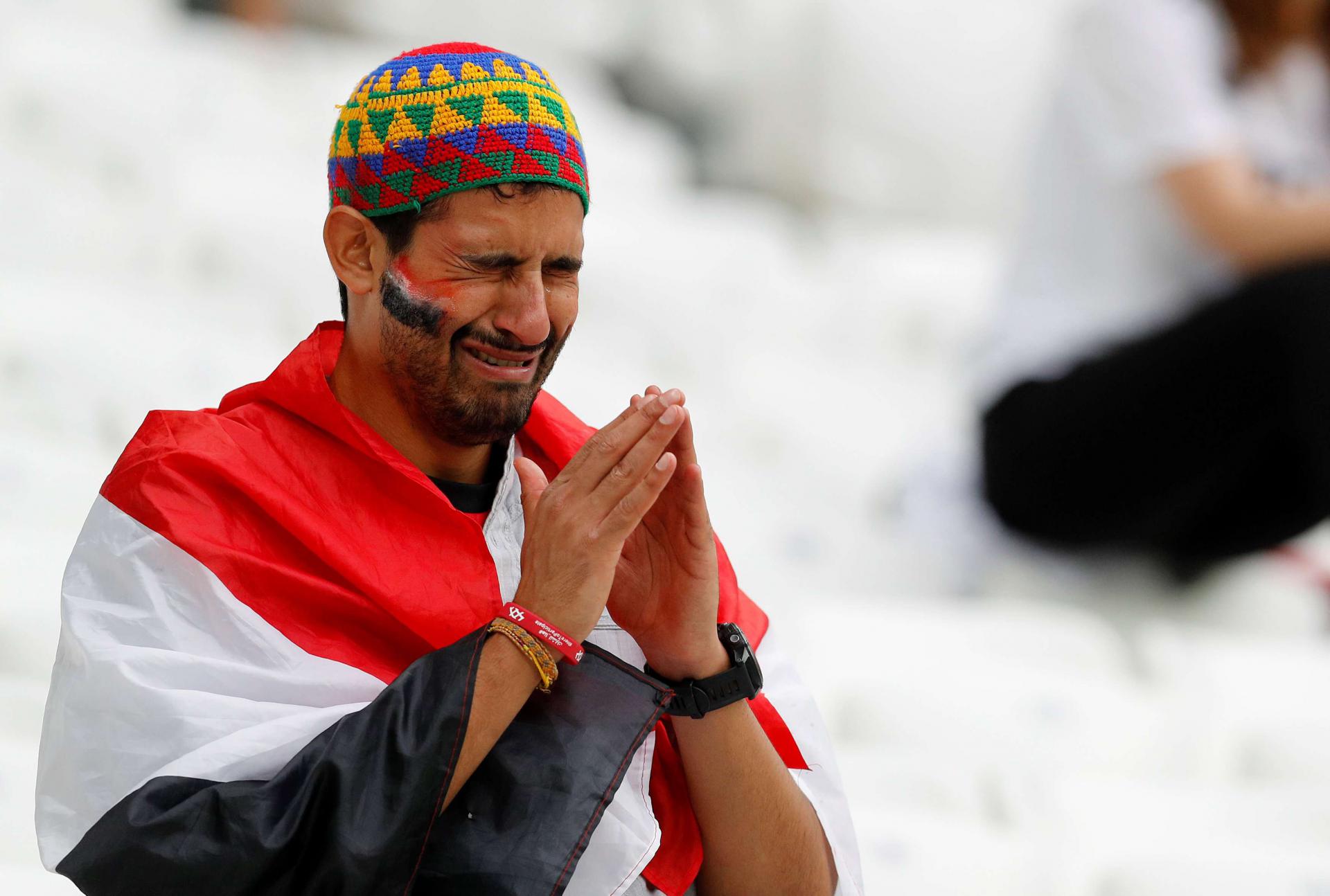Early Arab departures leave sour taste in football fans’ mouths
TUNIS - The 2018 FIFA World Cup has been a disappointment for the four Arab teams taking part, with all four teams bowing out in the first round.
The region’s poor performance, which included last-minute defensive breakdowns, frustrated fans who had high hopes for the tournament and raised questions about the region’s ability to have its teams’ performance match their growing presence in world football.
Egypt was the first to crash out of the tournament, losing 3-1 to an underpowered Russia on June 19. Saudi Arabia and Morocco followed the next day, with losses to Uruguay and Morocco, respectively. Tunisia hung on until June 23 before being defeated by one World Cup favourite Belgium.
One fan drily commented: “Arab countries always differ in everything but agree to leave the World Cup together.”
For many teams, fitness and concentration proved to be key factors, with both appearing to flag at the 90-minute mark. In an apparent disavowal of the team’s staff, Egypt fired all its trainers.
The Tunisians were neck and neck with their English rivals until the last minute but allowed a goal that dashed hopes. The Moroccans and Egyptians shared the dubious distinction of conceding goals in the 90th minute.
Some Arab coaches bemoaned their players’ loss of concentration under pressure. Others saw a deeper problem.
The 90th-minute hurdle proved a key talking point. “What’s the story of Arab teams with the 90-minute mark?” Tunisian columnist Habib Mbarki wrote. “Logic would say Arab teams have the means of standing up to the best of world teams for full 90 minutes but they did not.
“What Arab teams lacked was a deep understanding of the culture of victory and instilling it in the minds of players.”
After months of preparations and growing expectations, the losses by Arab teams fuelled disappointed social media posts. One popular Facebook video showed an angry Egyptian football fan asking: “What do other teams eat that our team does not? Why couldn’t our teams bring us some joy and happiness? We had the right to that!”
In an illustration of the Egyptian team’s fall from grace, some fans expressed concern over the squad’s own safety once they return home.
Questions about the readiness of Arab teams for the world stage are likely to mount, especially that, despite an underwhelming performance in Russia, the presence of Arab teams in the World Cup is set to grow as will scrutiny of their performances.
In 2026, Mexico, Canada and the United States will host the first 48-team World Cup, potentially including more Arab teams than ever.
Teams such as Saudi Arabia qualify for the World Cup via the Asian Football Confederation. Morocco, Egypt and Tunisia compete via the Confederation of African Football, leading one Egyptian fan to point out that, as far as football was concerned, they were “Arabs first, Africans second.”
In eight years’ time, the confederations will field a combined 17 teams in the finals instead of the present nine. However, if there is another poor showing in 2026, other federations could question why these countries have so many World Cup spots.
Ironically, it might be the better performance of Asian and African teams at the World Cup that is saving spots for the Arab world.






